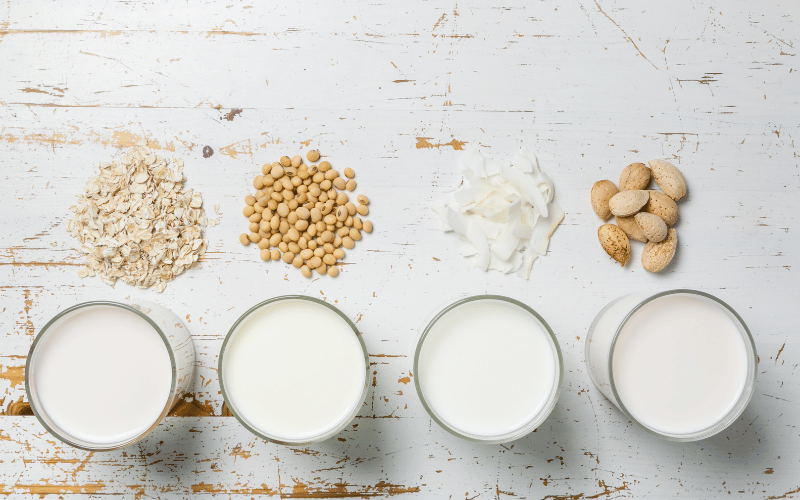5. Dairy Alternatives: Soothing Sips for Ulcer Relief

Let’s wrap up this culinary journey by discussing dairy alternatives like almond milk, oat milk, and soy milk. While some dairy products can be harsh on an ulcer, these alternatives offer a more gentle approach to nutrition.
Firstly, almond milk is high in vitamin E, another potent antioxidant. Almonds are also naturally alkaline, potentially helping to balance the stomach’s acidity. Note, however, that store-bought versions may contain added sugars, so opt for unsweetened varieties whenever possible.
Oat milk is another fascinating alternative. We’ve already touched upon the benefits of oats; these advantages carry over to oat milk. Additionally, oat milk is often fortified with vitamins like B12 and D, which play a role in overall wellbeing.
For those who prefer something closer to the nutritional profile of cow’s milk, soy milk is an excellent choice. It’s rich in protein and often fortified with calcium. Moreover, soy contains isoflavones, compounds that have been researched for their potential anti-inflammatory properties.
The market is now flooded with flavored versions of these dairy alternatives, making them even more enjoyable. From coffee creamers to ready-to-drink smoothies, the options are endless.
Ending on a refreshing note, these dairy alternatives can be incorporated into your diet in numerous creative ways. Whether you’re sipping them straight, adding them to your coffee, or transforming them into creamy sauces, they offer both diversity and comfort for your duodenal ulcer. (5)